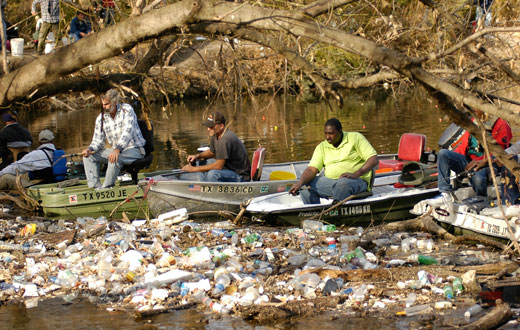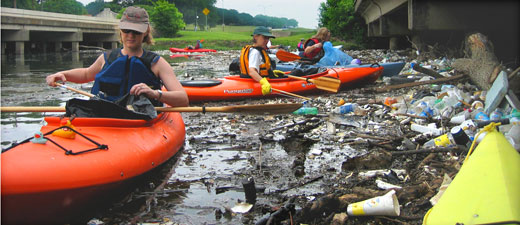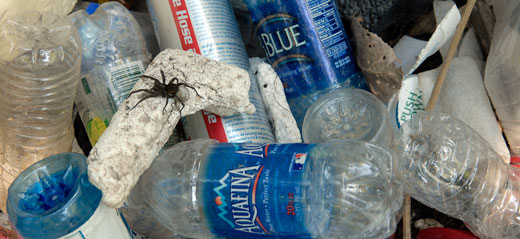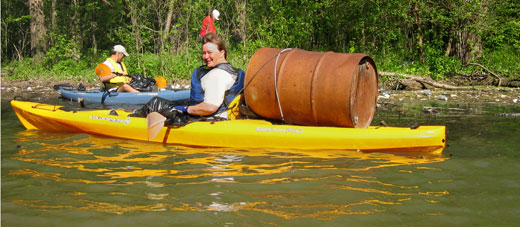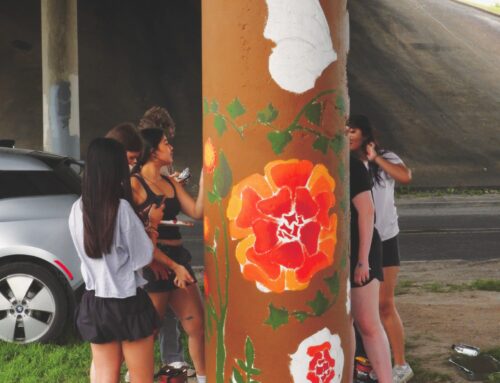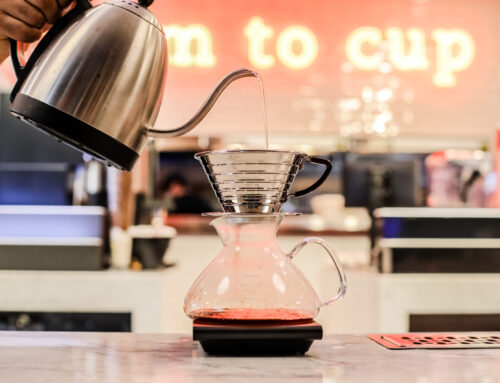In these beautiful waters, trash regularly rears its ugly head
White Rock Lake is, for many of its devotees, like a puppy. It is adored — perhaps the light of one’s life in an otherwise unexciting natural landscape — but it can be yucky at times, like when that pup leaves a mess on the floor. Pew. We do what we can to keep the lake pristine. Hundreds report each weekend to spruce up its shores; others have studied trash trends and do their best to educate the public about prevention. Trash from far north of Dallas makes its way to White Rock, and after a snow melt or a storm, we are left with a ring of garbage, explains White Rock area resident Annemarie Marek.
So while we may never end the mess completely, we can temper the inevitable through responsible action. That’s what members of Shared FUEL, a planet-protecting nonprofit of which Marek is the president, hope to do through a photo exhibit that runs through mid-April at the Bath House Cultural Center.
It’s beautiful from a distance, but White Rock Lake contains an alarming amount of garbage. Neighborhood resident and photographer Houston Brown’s photo of fishermen casting their lines into the muck is on display as part of the Bath House Cultural Center’s “Trashing Our Treasure” exhibit. Brown often shoots from his kayak, a vantage point that gives him a unique perspective. ““If you could only see what I see,” Brown says. “Just because we don’t see it, doesn’t mean it is not there having an impact on our environment.”
Neighborhood resident Mike Stovall, a budding photographer, works at Mariner Sails, a company that lends kayaks and canoes to volunteers at weekly White Rock Lake spruce-up events. His images (left and bottom) featured in the “Trashing Our Treasure” exhibit show a startling amount of trash floating on the lake’s surface after a heavy rainfall.
Exhibit coordinator BJ Ellis, who is an active lake volunteer, says she hopes images such as this close-up by Benjamin Hager will encourage people to “talk more trash” and collaborate on ways to reduce human impact on the Lake.
Stovall hopes that his images, as well as the other provocative pieces in the show, at the Bath House Cultural Center through April 17, will encourage action. “I hope that people will be moved to do a little personal policing of their own trash discards,” he says, “and boldly speak up to others who they see contributing to the problem.”

